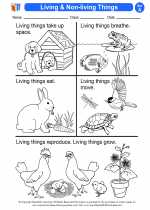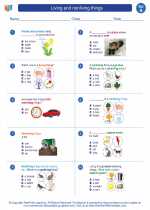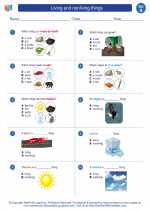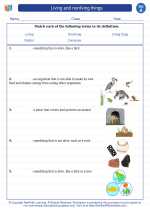Immune System
The immune system is a complex network of cells, tissues, and organs that work together to defend the body against harmful pathogens such as bacteria, viruses, and other microorganisms. Its primary function is to recognize and eliminate foreign invaders while also distinguishing them from the body's own healthy cells.
Components of the Immune System
The immune system is comprised of several key components:
- White Blood Cells: These cells, including lymphocytes, macrophages, and neutrophils, are the primary defenders of the body and play a crucial role in identifying and destroying pathogens.
- Antibodies: These proteins are produced by the immune system to neutralize and eliminate harmful substances such as bacteria and viruses.
- Complement System: This group of proteins enhances the ability of antibodies and phagocytic cells to clear microbes and damaged cells from an organism.
- Lymphatic System: This network of tissues and organs, including the spleen, thymus, and lymph nodes, is responsible for producing and storing cells that help the body fight infection and disease.
Immune Response
When a pathogen enters the body, the immune system responds in a coordinated series of steps:
- Recognition: The immune system recognizes the invading pathogen as foreign.
- Activation: White blood cells and other immune components are activated to attack and eliminate the pathogen.
- Elimination: The immune system works to destroy and remove the pathogen from the body.
- Memory: After the pathogen is eliminated, the immune system forms a memory of the invader, allowing for a quicker and more efficient response if the same pathogen is encountered in the future.
Study Guide
To understand the immune system, it's important to study the following key concepts:
- The different types of white blood cells and their specific roles in the immune response.
- The process of antibody production and how antibodies function to neutralize pathogens.
- The role of the lymphatic system in supporting the immune response.
- The steps involved in the immune response, from pathogen recognition to memory formation.
- How the immune system can be supported and strengthened through healthy lifestyle choices such as diet, exercise, and vaccinations.
By understanding these concepts, you can gain a comprehensive understanding of the immune system and its vital role in protecting the body from disease.
.◂Science Worksheets and Study Guides First Grade. Living and nonliving things
Study Guide Living and nonliving things
Living and nonliving things  Activity Lesson
Activity Lesson Living & Non-living Things
Living & Non-living Things  Worksheet/Answer key
Worksheet/Answer key Living and nonliving things
Living and nonliving things  Worksheet/Answer key
Worksheet/Answer key Living and nonliving things
Living and nonliving things  Worksheet/Answer key
Worksheet/Answer key Living and nonliving things
Living and nonliving things  Worksheet/Answer key
Worksheet/Answer key Living and nonliving things
Living and nonliving things  Vocabulary/Answer key
Vocabulary/Answer key Living and nonliving things
Living and nonliving things 

 Activity Lesson
Activity Lesson
 Worksheet/Answer key
Worksheet/Answer key
 Worksheet/Answer key
Worksheet/Answer key
 Worksheet/Answer key
Worksheet/Answer key
 Worksheet/Answer key
Worksheet/Answer key
 Vocabulary/Answer key
Vocabulary/Answer key

The resources above cover the following skills:
Concepts of Life Science (SC1, SC2, SC3)
The student demonstrates an understanding that all organisms are linked to each other and their physical environments through the transfer and transformation of matter and energy by identifying and sorting examples of living and non-living things in the local environment. (L)